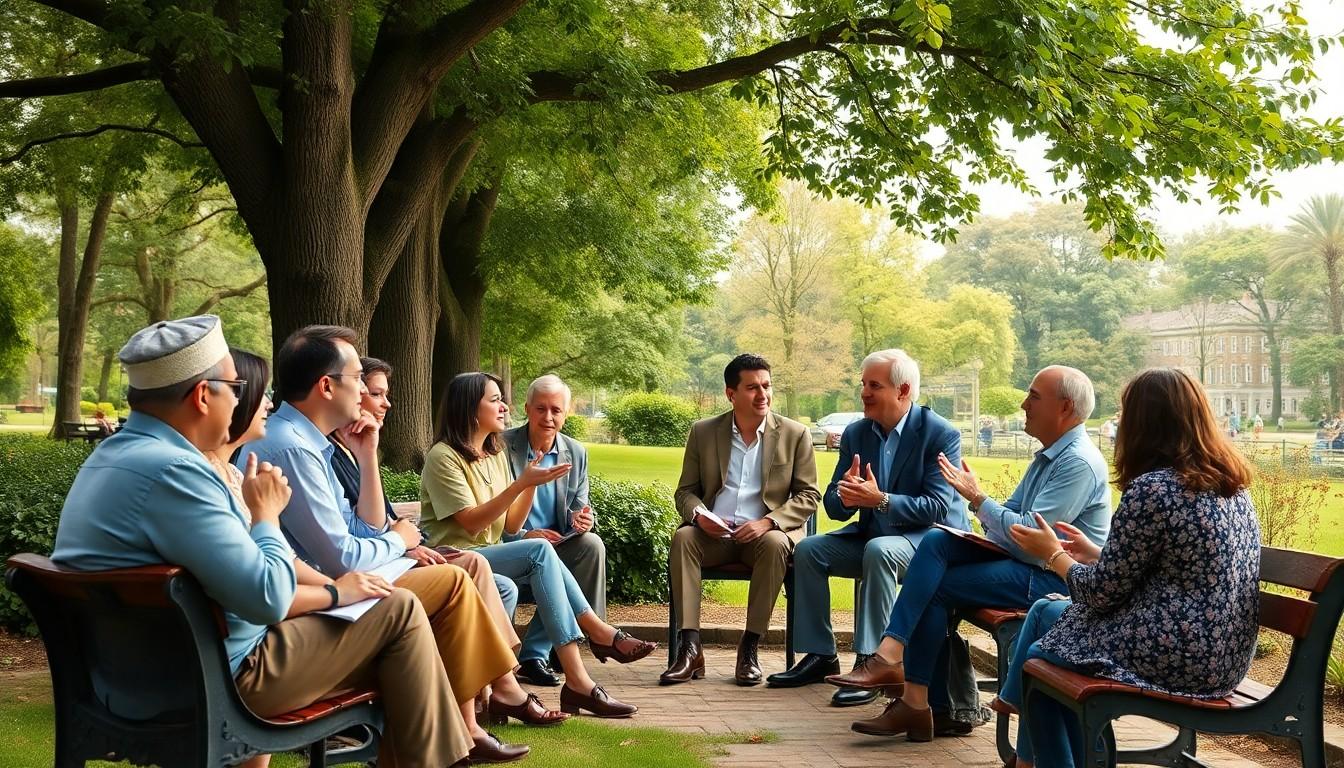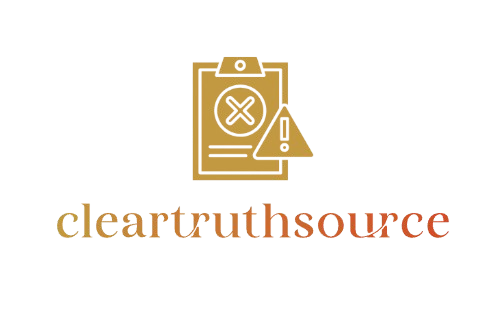In today’s polarized political landscape, moderate beliefs often get lost in the noise. While extremes shout their opinions from the rooftops, moderates quietly navigate the middle ground, making them the unsung heroes of rational discourse. They’re the folks who think a balanced diet means having a slice of pizza with a side of salad—pragmatic and a little cheeky.
Moderate political beliefs offer a refreshing alternative to the chaos. They blend ideas from both sides, proving that compromise isn’t just a word thrown around in political debates. Instead, it’s a way to foster understanding and create solutions that benefit everyone. So, if you’re tired of the shouting matches and want to explore a more sensible approach to politics, buckle up. It’s time to dive into the world of moderation, where common sense reigns and laughter is the best bipartisan policy.
Understanding Moderate Political Beliefs
Moderate political beliefs represent a middle ground in political ideologies. Many individuals identifying as moderates prioritize pragmatism and compromise over allegiance to extreme positions.
Definition and Characteristics
Moderate political beliefs encompass a blend of liberal and conservative views. Moderates often advocate for balanced solutions that reflect common sense. They value open dialogue and seek to find middle paths in contentious issues. Characteristics include flexibility, adaptability, and a willingness to collaborate with those across the political spectrum. Furthermore, moderates emphasize critical thinking, weighing empirical evidence against established ideals.
Historical Context
The rise of moderate political beliefs has historical roots in various socio-political movements. Throughout the 20th century, moderate politicians played pivotal roles in shaping significant legislation. Notably, figures like John F. Kennedy and Ronald Reagan emphasized bipartisanship. Political fluctuations reveal that moderates often emerge during times of intense polarization. Historical data indicate that moments of crisis fostered moderate coalitions aiming for stability and progress. Understanding this context highlights the essential role moderates play in the dynamics of democratic governance.
The Role of Moderation in Politics

Moderate political beliefs act as a stabilizing force in today’s contentious political landscape. They provide a crucial alternative to the extremes that dominate public discourse.
Balancing Extremes
Moderates strive to bridge gaps between opposing ideologies. They blend liberal and conservative perspectives to form comprehensive solutions. Adaptability defines their approach, allowing for the incorporation of diverse viewpoints. Compromise often becomes a hallmark of their strategies, fostering collaboration among factions. Historical examples show how moderation can mitigate conflicts, leading to productive dialogues.
The Impact on Political Discourse
Moderation influences political discussions by promoting civility and respect. Encouraging open dialogue shapes public conversation, allowing for a wider range of ideas. Moderates challenge the notion that politics must be polarized; this perspective can prevent the escalation of tensions. Their focus on evidence-based arguments enhances decision-making processes. Ultimately, moderate voices contribute to a more informed electorate, fostering democratic engagement.
Examples of Moderate Political Beliefs
Moderate political beliefs offer a spectrum that incorporates elements from both liberal and conservative philosophies. As a result, moderates often advocate for practical solutions that draw upon evidence and reason.
Key Issues and Perspectives
Moderates address a range of key issues by balancing different viewpoints. For instance, they may support economic policies that promote both market growth and social welfare. Environmental protection often aligns with their beliefs alongside sensible regulation of industries. Healthcare reforms present another focal point, where a moderate stance combines accessibility with personal responsibility. Education policies typically emphasize a blend of public investment and school choice as well. This multifaceted approach allows moderates to engage in constructive dialogue while addressing the concerns of various groups.
Prominent Figures and Movements
Several prominent figures exemplify moderate political beliefs through their actions. For example, former President John F. Kennedy championed civil rights while supporting fiscal responsibility. Governor Mitt Romney, as a Republican, has consistently advocated for bipartisan solutions on healthcare and climate policy. Grassroots movements such as the No Labels coalition aim to unite moderates from various parties to promote collaboration. Additionally, organizations advocating for civil discourse often highlight the importance of moderation in public debates. These figures and movements illustrate that moderates can effectively influence political landscapes by fostering cooperation and understanding.
Benefits of Embracing Moderate Political Beliefs
Moderate political beliefs offer significant advantages, contributing to a balanced and constructive political environment. The following subheadings detail specific benefits.
Social Cohesion
Social cohesion strengthens through moderate political beliefs. Moderates often facilitate communication between differing political views, fostering relationships among groups. Individuals engaged in collaborative dialogue experience reduced animosity, allowing for constructive partnerships. Recognizing common ground encourages unity, decreasing polarization within communities. By bridging gaps between opposing ideologies, moderates play a crucial role in promoting an inclusive political landscape. Their commitment to compromise cultivates mutual respect, which enhances social stability. Communities characterized by social cohesion benefit from shared goals and cooperative efforts.
Informed Decision-Making
Informed decision-making flourishes with moderate political beliefs. Moderates prioritize critical thinking and empirical evidence, leading to well-rounded perspectives. They encourage individuals to assess information from multiple viewpoints instead of adhering to dogmatic beliefs. Increased exposure to diverse ideas nurtures informed choices and enhances public discourse. By championing reasoned debate, moderates inspire others to engage thoughtfully with important issues. An electorate composed of informed individuals contributes to a robust democracy. Ultimately, adopting moderate beliefs promotes analytical thinking and fosters a culture of knowledge-based discussions.
Challenges Facing Moderate Political Beliefs
Moderates encounter significant hurdles in today’s political landscape. These challenges stem from polarization, division, and pervasive misconceptions.
Polarization and Division
Political polarization creates a daunting environment for moderates. Voters increasingly align with extremes, leaving little space for middle-ground dialogue. Individuals often prioritize loyalty to party ideologies over collaborative solutions. This division limits moderates’ influence in legislative processes, making it difficult to enact balanced policies. As partisanship intensifies, moderates face alienation from both sides. They struggle to gain traction in elections, where extreme views often dominate voter preferences. Engagement in political discussions proves challenging, as extreme partisans dismiss moderate perspectives, diminishing their value in debates.
Misconceptions and Stereotypes
Stereotypes about moderates frequently overshadow their actual beliefs. Many view moderates as indecisive or lacking strong principles. Misunderstanding leads to assumptions that they avoid taking stances on important issues. In reality, their approach prioritizes thoughtful analysis and evidence-based reasoning. Critics often label moderates as ineffective, disregarding the essential role they play in fostering bipartisanship. Additionally, moderates encounter dismissiveness from both political extremes, which sees moderation as compromise rather than strength. Combatting these misconceptions remains a critical challenge, as they undermine the meaningful contributions moderates can make to political discourse.
Conclusion
Moderate political beliefs serve as a vital counterbalance in today’s polarized environment. By prioritizing compromise and open dialogue, moderates foster a more inclusive political landscape. Their emphasis on pragmatism encourages collaboration and understanding among diverse perspectives, ultimately enhancing democratic engagement.
As society faces complex challenges, the role of moderates becomes increasingly important. They bridge gaps between extremes and promote solutions grounded in critical thinking and empirical evidence. Embracing moderation not only cultivates social cohesion but also nurtures informed decision-making.
Recognizing the value of moderate beliefs can lead to a more stable and constructive political discourse. In a time of division, it’s essential to champion the voices that advocate for balance and cooperation, paving the way for a healthier democracy.

